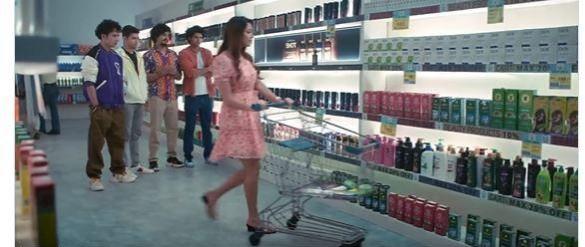In a nation where gang rapes are yet to be few and far between and every unfortunate incident takes the public memory right back to Nirbhaya or Hathras, gang rapes can be anything but funny. Least of all, a means to market a men's body spray.

Four boys are looking in the direction of a young unaccompanied girl in a grocery store and contemplating, "It's four of us, while she is alone. Who will take the shot?" Till the poor alarmed girl realises that it's the 'shot' body spray being referred to by the boys. The video, understandably, led to a ruckus and uproar on social media but for all the wrong reasons and the right objections. "Who approved this in the first place," questioned the users collectively on social media.
Unfortunately, this is not the first advertisement by the brand, which earlier too banked on the brand name 'shot' and chose to bank on double meaning jokes. Four boys walk in on a boy and a girl in the room and question as to who will take the 'shot.'
Where is the Advertising Standards Council of India?
Is it sleeping, looking the other way or is plain fine with the advertisement? Many rued the fact, that double meaning dialogues and perverted sense of humour actually translated to more eyeballs and attention.
"This ruckus on social media has already given them enough publicity. Maybe this is what they wanted," opined a user. Which defeats the very purpose of advertising guidelines being in place if they are not adhered to. "Even if the ad is taken down now. What purpose will it serve? The brand got its fifteen minutes of fame, rather more," posted another netizen.
How does this kind of ads get approved, sick and outright disgusting. Is @layerr_shot full of perverts? Second ad with such disgusting content from Shot.@monikamanchanda pic.twitter.com/hMEaJZcdmR
— Rishita? (@RishitaPrusty_) June 3, 2022
What the principles and guidelines by ASCI say
In a recent welcome move, the Advertising Standards Council of India (ASCI) updated its advertising standards code to ensure that adverts were less discriminatory and more inclusive. A post on the organisations' Linkdin page says, "The code now calls our derision on gender identity, sexual orientation, body type, age or physical and mental conditions."
The portrayal of women, perpetuation of stereotypes and objectification of women's bodies has been a subject of studies since many decades now. But regardless of the guidelines and screening systems in place, ads portraying violence, indecency and improper humour regularly make their way to the audience.











